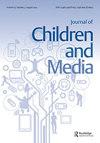Children and adolescents as news sources: research brief on voice and agency of minors in Swedish and Estonian journalistic regulative documents
IF 2.1
3区 心理学
Q2 COMMUNICATION
引用次数: 0
Abstract
ABSTRACT This research briefly analyses Swedish and Estonian laws, journalistic codes of ethics, and newsroom guidelines that set the foundation for minors (not) being interviewed as news sources. Textual analysis of such documents shows that regardless of minors’ right to free expression, minors are mostly addressed only in victims’ roles, prioritizing protection over representation. Focus on guardian consent of under 18s is justified as protection, which also helps protect the newsroom from adverse reactions. We argue that the regulative basis of journalism reinforces the exclusion of minors from news coverage and prevents them from participating in public discussions. Therefore, the documents need updating from contemporary childhood sociology perspectives according to which minors are considered a resourceful group and distinguished into several age groups and roles, thus can be empowered to be included in news media. Impact summary Prior State of Knowledge: Children are underrepresented in news media, which reduces their freedom of expression and agency to be part of public discussions. This decreases their interest in news media and isolates them from civic participation. Novel Contributions: Empirical research lacks the studies on the reasons why newsrooms exclude minors from news coverages. The current study focuses on regulations that affect journalistic practice on grass-root level and indicates the need for paradigmatic changes in regulatory documents. Practical Implications: Our findings have implications primarily for media scholars and journalists, but also parents. We encourage a discussion and change in the principles how minors should be engaged in news coverages.作为新闻来源的儿童和青少年:瑞典和爱沙尼亚新闻规范文件中未成年人的声音和代理研究简报
摘要本研究简要分析了瑞典和爱沙尼亚的法律、新闻道德准则和新闻编辑室指南,这些法律为未成年人(非)作为新闻来源接受采访奠定了基础。对这些文件的文本分析表明,无论未成年人的言论自由权如何,未成年人大多只在受害者的角色中得到处理,将保护置于代表之上。关注18岁以下儿童的监护人同意是合理的保护,这也有助于保护新闻编辑室免受不良反应的影响。我们认为,新闻业的监管基础强化了未成年人被排除在新闻报道之外,并阻止他们参与公共讨论。因此,这些文件需要从当代儿童社会学的角度进行更新,根据这些角度,未成年人被认为是一个足智多谋的群体,并被分为几个年龄组和角色,从而有权被纳入新闻媒体。影响摘要先前的知识状况:儿童在新闻媒体中的代表性不足,这降低了他们参与公共讨论的言论自由和代理权。这降低了他们对新闻媒体的兴趣,并将他们与公民参与隔离开来。小说贡献:实证研究缺乏对新闻编辑室将未成年人排除在新闻报道之外的原因的研究。目前的研究重点是影响基层新闻实践的法规,并表明有必要对法规文件进行典型的修改。实际启示:我们的研究结果主要对媒体学者和记者有启示,也对家长有启示。我们鼓励讨论和改变未成年人应如何参与新闻报道的原则。
本文章由计算机程序翻译,如有差异,请以英文原文为准。
求助全文
约1分钟内获得全文
求助全文

 求助内容:
求助内容: 应助结果提醒方式:
应助结果提醒方式:


